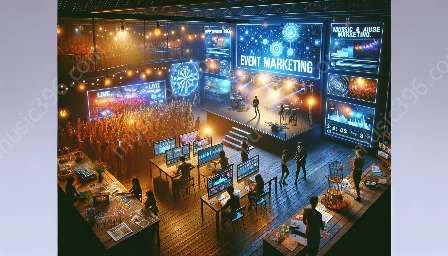The music industry is continuously evolving, and the way consumers engage with music has significantly changed in recent years. Radio promotion, a traditional yet effective method of marketing music, needs to adapt to these changing consumption habits to remain relevant. In this topic cluster, we will explore the impact of evolving consumption habits on radio promotion and delve into creative strategies for music marketing in the digital age.
Evolution of Consumption Habits
Before diving into the adaptation of radio promotion, it's essential to understand how consumption habits have evolved. With the advent of digital streaming services, social media, and personalized playlists, consumers now have more control over what and how they listen to music. This shift has diminished the dominance of traditional radio as the primary source of music discovery and consumption.
Moreover, the rise of on-demand and personalized content has led to a highly fragmented audience, making it challenging for radio promotion to reach and resonate with diverse listener segments.
Challenges in Radio Promotion
As consumption habits continue to evolve, traditional radio promotion faces several challenges. Firstly, the decline in radio listenership among younger demographics has shifted the focus of music discovery to online platforms. This poses a hurdle for artists and record labels relying solely on radio airplay to reach their target audience.
Additionally, the competitive landscape within the music industry has intensified, with streaming platforms, social media influencers, and algorithm-based recommendations vying for consumer attention. Radio promotion must now compete with a multitude of digital channels to capture audience interest.
Strategies for Adaptation
Recognizing the need to adapt, the music industry has begun implementing innovative strategies to align radio promotion with changing consumption habits. One approach is the integration of digital platforms and social media into traditional radio campaigns. This involves leveraging social media influencers, partnering with streaming services, and creating engaging digital content to complement radio airplay.
Furthermore, data analytics and audience segmentation have become instrumental in refining radio promotion strategies. By utilizing listener data from digital platforms and streaming services, music marketers can identify niche audiences for targeted radio campaigns, ensuring that promotional efforts are tailored to specific consumer preferences.
Creating Engaging Content
Another vital aspect of adapting radio promotion is the creation of engaging content that resonates with modern listeners. In a digital era where attention spans are limited, radio promotion must strive to deliver compelling and memorable content. This includes producing captivating on-air segments, hosting interactive listener experiences, and collaborating with popular digital content creators to amplify promotional efforts.
Personalization and Interactivity
Personalization is key to capturing the attention of modern consumers. With the availability of listener data and analytics, radio promotion can be personalized to cater to individual preferences, enhancing the relevance and impact of promotional messages. Additionally, interactivity plays a crucial role in modern radio promotion, as it fosters engagement and enables direct interaction with the audience through live polls, listener shoutouts, and exclusive interactive experiences.
Integration of Emerging Technologies
As technology continues to shape consumer behavior, the integration of emerging technologies is essential for the adaptation of radio promotion. Virtual and augmented reality experiences, interactive voice assistants, and immersive audio formats present new opportunities for music marketing through radio. By embracing these technologies, radio promotion can deliver immersive and interactive experiences that captivate and engage listeners in innovative ways.
Measuring Impact and Effectiveness
With the evolution of radio promotion strategies, the measurement of impact and effectiveness becomes increasingly crucial. Utilizing advanced data analytics, music marketers can track the performance of radio campaigns, assess audience engagement, and derive insights to optimize future promotional efforts. This data-driven approach enables continuous refinement and adaptation to changing consumption habits, ensuring that radio promotion remains a valuable and impactful marketing channel for the music industry.
Conclusion
Adapting radio promotion to changing consumption habits is imperative for the music industry to stay relevant and effective in reaching modern audiences. By embracing digital integration, creating engaging content, personalizing promotional efforts, integrating emerging technologies, and leveraging data-driven insights, the potential of radio promotion in music marketing can be fully realized in the digital age.


























